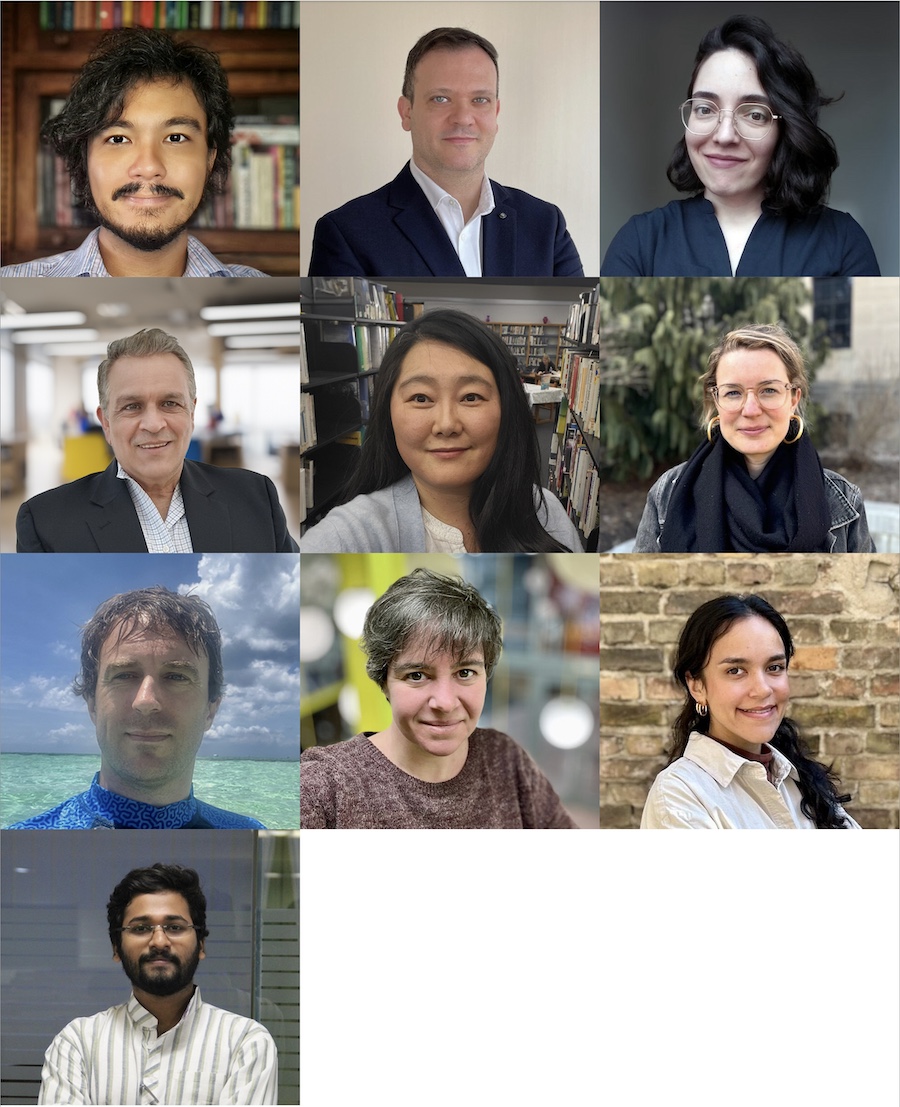Welcome to the 2025/2026 Cohort of ICDE Research Fellows

We are happy to introduce the 2025/2026 cohort of Research Fellows at the Institute for the Cooperative Digital Economy (ICDE)—ten researchers who demonstrate a shared commitment to transforming the digital economy—through cooperative data centers, solidarity finance, public tech, and ethical AI rooted in healthcare.
We begin with Dorleta Urrutia-Onate, a professor at Mondragon University and Ph.D. student at the University of Deusto, who brings expertise in cooperative digital economies and ethical AI governance. At ICDE, she explores how financing mechanisms like securitization, impact bonds, and clean fintech certification can enable platform cooperatives to scale sustainably without compromising democratic ownership.
Her work resonates with that of Ganesh Gopal, a Ph.D. student at Gandhigram Rural Institute in India. With leadership roles at ICA Asia-Pacific and Tinkerhub, Ganesh analyzes Kerala’s state-supported ride hailing app Savaari. His research focuses on understanding the failure of this state-owned digital platform in Kerala, comparing it to other public digital platforms that folded or succeeded.
Ganesh’s inquiry is closely linked to that of Jeongone (Joh) Seo, a licensed social worker and interdisciplinary scholar pursuing her second Ph.D. at Rutgers University. Joh examines the collapse of state-led platform initiatives, with a focus on South Korea’s BaedalTeukgeup, exploring how digital rent extraction and governance gaps undermine their promise—especially for marginalized groups like the elderly and immigrants.
Shifting to Latin America, Kenzo Seto, a Postdoctoral Fellow at Yale Law School and Ph.D. in Communication from UFRJ, brings vast experience in public policy and platform governance. At ICDE, he studies decentralized digital infrastructure and platform cooperatives in Brazil and Argentina, emphasizing digital sovereignty and economic democracy. Kenzo’s work bridges law, technology, and political theory, grounded in activism and collective organizing among tech workers.
Also from Brazil, Lila Gaudêncio, a Gates Cambridge Scholar and Ph.D. candidate at the University of Cambridge, investigates the role of digital community currencies in reshaping solidarity finance. Her ICDE research focuses on Brazil’s E-dinheiro platform, analyzing how cooperative principles can be embedded in fintech to democratize economic participation and improve cooperative governance.
From Brazil’s solidarity finance to Mexico’s healthcare challenges, Adolfo J. Acosta, a Ph.D. in Social Processes from Universidad Iberoamericana Torreón specialized in the Mexican cooperative movement, examines how platform cooperatives can offer alternatives to privatized healthcare. At ICDE, he investigates how co-ops can fill service gaps through democratic, digital innovation.
In the areas of healthcare and technology, Linda Huber, a Ph.D. candidate at the University of Michigan’s School of Information, focuses on how AI and automation are transforming labor in the healthcare sector. At ICDE, she develops the concept of an AI Labor Council—a worker-driven initiative to assess risks and propose ethical interventions in tech-driven workplaces.
Stuart Fulton, Director of Development at COBI and co-founder of PescaData, brings a conservation lens. His ICDE project investigates how data cooperatives can advance investment in small-scale fishing co-ops in Latin America, advancing economic democracy and sustainable ocean resource management through collective tech solutions.
Addressing infrastructural justice from a political theory perspective, Tara Merk, a Ph.D. candidate at CNRS/Panthéon-Assas University, studies cooperative data centers and their potential to support cooperative AI. Her ICDE research draws on historical case studies and governance frameworks, offering a vision of digital systems governed by community rather than capital.
Finally, Dr. Mark Esposito, a leading scholar in AI governance and blockchain innovation, joins ICDE from Harvard, Hult, and Georgetown. He examines how decentralized and autonomous organizations (DAOs) can enhance transparency, accountability, and participation in digital commons, providing new governance models rooted in cooperative values.
Together, these ten fellows represent a convergence of disciplines, geographies, and visions—all united by their dedication to transforming digital economies through solidarity, democracy, and cooperation. We are honored to support their work.